Composers
Louis James Alfred Lefébure-Wely
| Country: | France |
| Period: | Romantique |
Louis James Alfred Lefébure-Wely (13 November 1817, Paris – 31 December 1869, Paris) was a French organist and composer.
Lefébure-Wely played a major role in the development of the French symphonic organ style and was a close friend of the organ builder Aristide Cavaillé-Coll, inaugurating many new Cavaillé-Coll organs.
He began to study music aged 4 with his father, who was the organist of Saint-Roch. By the age of 8 he was advanced enough to substitute for his father when the latter was stricken by paralysis. When his father died six years later (in 1831), he became the church's regular organist (where he remained until 1846).
In 1832 he was admitted to the Paris Conservatoire, studying the organ under François Benoist, and the piano under Laurent and Pierre Zimmermann. His ability on both instruments won him second prizes in 1834, and first prizes in 1835. His composition teachers were Berton and Halévy. He also took private lessons from Adolphe Adam. He learned much of organ effects and improvisation from the celebrated Nicolas Séjan at Saint-Sulpice. His own fame as an improviser dates from his acceptance of the post of Organist at the Église de la Madeleine, which he held from 1847-1858. He resigned from this position in order to write his opéra-comique Les Recruteurs, hoping to achieve as a composer the same success he had as an organist. Unfortunately, the opera was considered a failure. With a new generation, led by Jacques-Nicolas Lemmens, progressively stealing the limelight from him, his fame was however still huge enough to make him succeed Séjan at Saint-Sulpice in 1863, against Cavaillé-Coll's opinion. The newly rebuilt organ of Saint-Sulpice was then the biggest in the world with its hundred stops, and the position as a titular organist was presumably the most coveted in Europe. He remained there until his death six years later, aged 52, during the night between Dec. 31st 1869 and Jan 1st 1870. He was succeeded by Widor.
Because of his exceptional pedal technique, he is the dedicatee of the 12 études pour les pieds seulement (12 Studies for organ pedals alone) by Charles-Valentin Alkan and of the Final en si bémol for organ, op. 21, by César Franck.
His most celebrated compositions are probably the Sorties in E-flat and B-flat major for organ from L'Organiste moderne, and the famous Boléro de Concert, which is not written for organ, but for harmonium. He also wrote about fifty études and a hundred character pieces for the piano, and also many works for the organ and harmonium. Larger scale works include 3 masses (two with organ, one with orchestra), three symphonies, chamber music, and a three-act opera Les Recruteurs which was produced at the Opéra Comique in 1861.
Lefébure-Wely is buried in the Père Lachaise cemetery in Paris.
Refine by search
view all| Country: | France |
| Period: | Romantique |
Biography
Louis James Alfred Lefébure-Wely (13 November 1817, Paris – 31 December 1869, Paris) was a French organist and composer.
Lefébure-Wely played a major role in the development of the French symphonic organ style and was a close friend of the organ builder Aristide Cavaillé-Coll, inaugurating many new Cavaillé-Coll organs.
He began to study music aged 4 with his father, who was the organist of Saint-Roch. By the age of 8 he was advanced enough to substitute for his father when the latter was stricken by paralysis. When his father died six years later (in 1831), he became the church's regular organist (where he remained until 1846).
In 1832 he was admitted to the Paris Conservatoire, studying the organ under François Benoist, and the piano under Laurent and Pierre Zimmermann. His ability on both instruments won him second prizes in 1834, and first prizes in 1835. His composition teachers were Berton and Halévy. He also took private lessons from Adolphe Adam. He learned much of organ effects and improvisation from the celebrated Nicolas Séjan at Saint-Sulpice. His own fame as an improviser dates from his acceptance of the post of Organist at the Église de la Madeleine, which he held from 1847-1858. He resigned from this position in order to write his opéra-comique Les Recruteurs, hoping to achieve as a composer the same success he had as an organist. Unfortunately, the opera was considered a failure. With a new generation, led by Jacques-Nicolas Lemmens, progressively stealing the limelight from him, his fame was however still huge enough to make him succeed Séjan at Saint-Sulpice in 1863, against Cavaillé-Coll's opinion. The newly rebuilt organ of Saint-Sulpice was then the biggest in the world with its hundred stops, and the position as a titular organist was presumably the most coveted in Europe. He remained there until his death six years later, aged 52, during the night between Dec. 31st 1869 and Jan 1st 1870. He was succeeded by Widor.
Because of his exceptional pedal technique, he is the dedicatee of the 12 études pour les pieds seulement (12 Studies for organ pedals alone) by Charles-Valentin Alkan and of the Final en si bémol for organ, op. 21, by César Franck.
His most celebrated compositions are probably the Sorties in E-flat and B-flat major for organ from L'Organiste moderne, and the famous Boléro de Concert, which is not written for organ, but for harmonium. He also wrote about fifty études and a hundred character pieces for the piano, and also many works for the organ and harmonium. Larger scale works include 3 masses (two with organ, one with orchestra), three symphonies, chamber music, and a three-act opera Les Recruteurs which was produced at the Opéra Comique in 1861.
Lefébure-Wely is buried in the Père Lachaise cemetery in Paris.
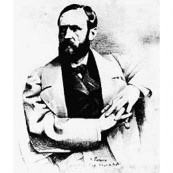


![Het Historische Orgel in Nederland [CD 19 of 20]](http://static.classicalm.com/repository/collection-cover/small/1017-img1343983488359202.jpg)
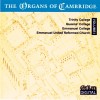
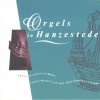
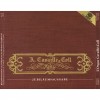
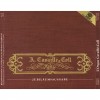
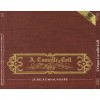
![Great European Organs. 64-Daniel Roth [Saint-Sulpice, Paris]](http://static.classicalm.com/repository/collection-cover/small/967-img1342708833767081.jpg)